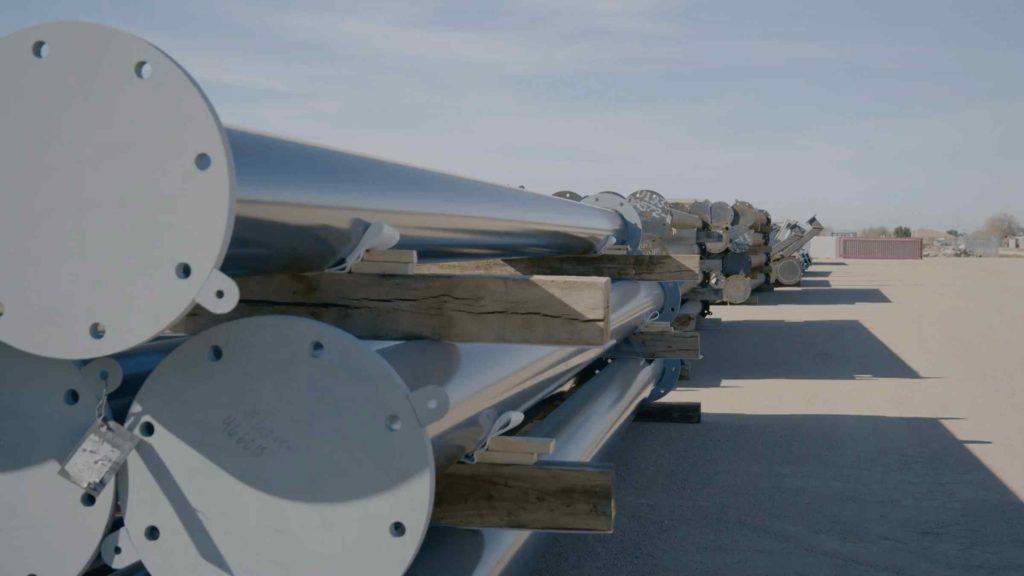
 | Stream Modular | September 30, 2022 |
Share this Article     |  In construction, time is money. So why wouldn’t you take advantage of something that can help you build more quickly? Offsite manufacturing for construction is proving to be an important new tool to reduce time and improve cost efficiencies in onsite builds. But, how does onsite manufacturing work with offsite modular construction? And do the benefits really outweigh the concerns holding you back? Here we examine the reasons offsite manufacturing of structural materials can drive a faster build. What is the offsite manufacturing of structural components?You’re likely familiar with volumetric modular construction, in which entire rooms or buildings are completely — or mostly — assembled off site. Volumetric systems are put together by connecting pre-build sections, pods or modules. And, modular systems involve the entire process of planning, designing, fabricating and transporting buildings to their site. Offsite construction can also include the remote manufacturing of smaller units within a build. The offsite manufacturing of structural materials is when the key structural pieces of a building like the walls, roof, and flooring can be manufactured off site and then shipped for integration with the rest of a project on site. These are broken down into two general categories: sub-assemblies and panelized systems. Sub-assembliesEssentially, sub-assemblies are any part of a building that’s made in a factory and then brought to the construction site to be built on site. Technically, these ‘sub-assemblies’ can be as small as door handles, but typically, we’re referring to larger, universal components like roof trusses, HVAC systems or data center racks that are mass-produced, assembled and ready to be installed. Panelized systemsPanelized systems are structural components that can be flat-packed like furniture. Packed flat and loaded up on a truck ready for installation on site, these panelized systems are often pre-fitted with key features like electrical and mechanical sockets and pipes in the factory — saving precious time on the build site. The pros of offsite manufacturing of structural materialsAs a general contractor or builder, you can actually leverage the offsite technology used for sub-assemblies and panelized systems to your advantage. By opting to use structural components built off site, you can speed up your build with pre-fabricated, high-quality structural components, all while cutting costs and making your customers happy. Efficiency and predictabilityGeneral contractors or builders can save a lot of time and headaches by having structural pieces made off site. Whereas on site you have to have the right weather, the right crew and all the right tools — that are working properly, might we add — with offsite, the process is done in a factory where the conditions are totally streamlined and standardized. This allows your offsite manufactured structural components to be delivered on time — ready for you to put them in place. High-quality products, quickerThe offsite fabrication and assembly of structural materials allow for a kind of quality assurance and control you can only get in a factory. Just imagine your walls coming insulated, wired, piped and ready for installation by your crew. And with the ability to precisely meet design specifications in a factory setting, you can deliver a high-quality final product each time, on time. Plus, these prefabricated structural components save you build time. According to Pro Builder, “Wall panels and roof trusses saved 71 hours (nearly three days) per house for that stage of construction, a 47.2% time savings.” Cost-effectiveA factory setting inherently has less waste, faster production and fewer mistakes. So, there’s no loss of time or resources like there can be on site. While something like panelized walls will cost you an estimated 10-20% more, you will offset those costs by having to invest in less equipment and pay for less labor. These built-in savings add money directly to your margins, allowing you to save on your time and resources, too. Your customers will probably like this option, tooYour customers have a lot to gain from the offsite manufacturing of structural components. For one, it cuts down on the trucks, materials, heavy machinery and workers necessary to build them on site, meaning there’s less noise and disturbance in their neighborhood. Your clients will also love that offsite manufacturing of structural components is green — producing less job site travel, noise pollution and waste. Pro tip:You can lose the benefits of low-cost production with high transportation logistics costs. The earlier you can reach out for quotes and costs, the more you can plan for your budget. When you wait too long and don’t have quality conversations about transportation until the later stages of a project, it puts you behind the 8-ball. Plus, if it is feasible for you to organize logistics for your project months rather than weeks before, this gives your transportation partner more time to plan and organize, usually resulting in savings. As we always say, ‘Logistics First.’ When we can get involved as early as possible, we can start thinking about transportation well before trucks hit the road. Offsite Manufacturing of Structural Components? Need help?Get in touch with our experienced team to see how we can help you make your build that much more efficient. Stream Modular is a transportation logistics company specializing exclusively in modular construction. We help modular manufacturers and builders transport mods, pods and panels so they arrive on time and safely to the build site. Read more: |
| Have transport logistics questions about your next modular construction project? Book a call with our specialized modular team. | Get Expert Advice |